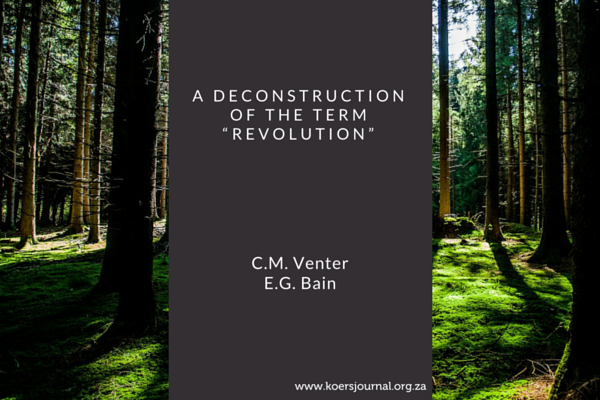Abstract
The precise meaning of the concept of (political) revolution remains semantically contested. According to Arslanian (2013:127) this concept “is often used liberally, applied to everything from the ‘Social Media Revolution’ to the ‘Sexual Revolution’”. Brinton (1965:1-4) agrees, referring to revolution as a concept that “troubles the semanticist not only because of its wide range in popular usage, but also because it is one of those words charged with emotional content”. In some instances revolution even becomes a “holy word” with an a priori moral force which sets preconditions for moral righteousness. It seems that “the revolution” can become just as important as a religion would be. This same revolution/religion also provides the opportunity to gain material and immaterial goods for human-kind (Marcuse, 2001:123). Koselleck (as quoted by Marinelli; 2014:8) argues that the semantics of the concept revolution is by no means unequivocal. The goal of this article therefore is to address the semantic vagueness of the political concept of revolution through a literature analysis, subsequently listing observable characteristics of the phenomenon. As such, this article is a theoretical effort contributing to what Babbie and Mouton (2008:113) call the hermeneutic cycle of ever-deepening understanding in which the different observables of revolution will be arrived at via the deconstruction of various definitions from wide-ranging schools of thought and ideas of revolution. Key concepts: Revolution, deconstruction; characterisation. Opsomming:Die presiese betekenis van die konsep (politieke) revolusie is semanties omstrede. Volgens Arslanian (2013:127) word die konsep algemeen gebruik om enigiets van die ‘Sosiale Media Revolusie’ tot die ‘Seksuele Revolusie’ te beskryf. Brinton (1965:1-4) stem hiermee saam en beskryf revolusie as ?n konsep wat problematies is vir die semantikus omdat dit in die populêre taal gebruik word en omdat dit met emosionele inhoud gelaai is. In sommige omstandighede word revolusie selfs ?n “heilige woord” met ?n a priori morele mag wat die voorvereistes bevat vir geregtigheid. Dit blyk dat “die revolusie” net so belangrik kan raak soos wat ?n religie kan wees. Hierdie revolusie/religie voorsien dan die geleentheid om materiële en niemateriële goedere deur die mensdom te versamel (Marcuse, 2001:123). Koselleck (soos aangehaal deur Marinelli 2014:8) argumenteer dat die betekenis van revolusie allermins ondubbelsinnig is. Die doel van die artikel is dan om die semantiese vaagheid van die politieke term rewolusie te ontleed deur ?n literatuurstudie waarna die waarneembare kenmerke van die verskynsel gelys sal word. As sulks poog die artikel om ?n teoretiese bydrae te maak tot wat Babbie and Mouton (2008:113) die hermeneutiese siklus van dieperwordende begrip noem en waarin verskillende waarneembare kenmerke van revolusie geïdentifiseer sal word deur die dekonstruksie van verkillende definisies beskryf in verskillende denkskole. Kernbegrippe: Revolusie, dekonstruksie; karakterisering._28.png) https://doi.org/10.19108/KOERS.80.4.2246
https://doi.org/10.19108/KOERS.80.4.2246

This work is licensed under a Creative Commons Attribution-NoDerivatives 4.0 International License.
Copyright (c) 2016 J.C.M. Venter, E.G. Bain

